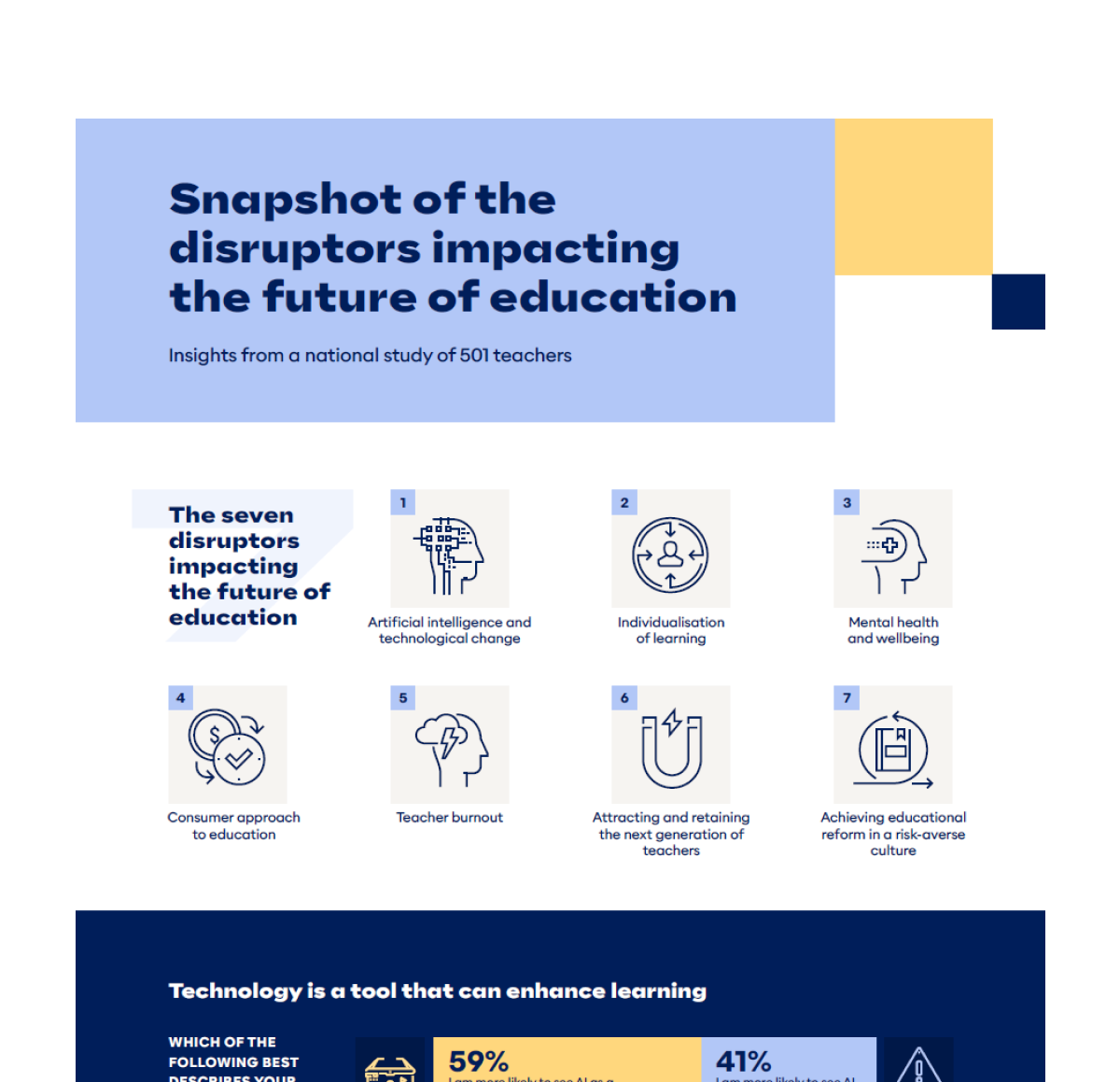ARTICLE
The importance of parental choice

The current trends sweeping the educational sphere are unprecedented. We see the convergence of new generations entering classrooms, juxtaposed with the challenges of attracting and retaining younger staff in the face of an aging profession. Technological revolutions catalysed by the pandemic have normalised hybrid learning, while societal shifts, funding challenges, global influences, and empowered parents and students have elevated the expectations of a more holistic educational experience. Amidst this, the transitioning world of work emerges as an additional factor reshaping the educational landscape.
Education stands at a pivotal juncture, witnessing waves of change that are redefining the very landscape in which our children learn and grow. The role of parental choice in this shifting environment is more critical than ever, shaping not only the trajectory of individual students but also the holistic development of the education sector.
A consumer approach to education
Never before has education been more accessible, adaptable, and susceptible to disruption. It’s crucial to not only recognise these disruptors but also discern the unique opportunities they present. This understanding equips students to not just survive but thrive in an ever-evolving world.
In today’s society, the educational landscape is shaped by a consumer approach, where parents, given numerous schooling options, often view education through a lens of ‘what will benefit my child’ rather than as co-contributors in their child’s educational journey. This shift has its merits, yet it’s essential to balance this consumer perspective with a collaborative approach that fosters a partnership between educators and parents, striving for a shared goal of preparing students for life beyond school.
While community structures outside educational realms are deconstructing, schools possess the potential to counter this trend by emerging as thriving hubs of community and collaboration. The lessons learned during the COVID-19 era emphasized that schools are not mere educational institutions but vibrant communities of learning.
Moreover, in response to the declining sense of community and shared values in society, educational leaders emphasize the significance of instilling values and fostering inclusive communities within schools. Celebrating diversity while upholding shared values fosters a sense of unity in diversity, rooted in care and respect.
The opportunity for partnership
The partnership between schools and parents is fundamental in achieving optimal outcomes for students. Establishing a foundation of trust in educators’ expertise and nurturing strong connections with parents allows for collaborative contributions toward a child’s growth and development.
Today’s students are globally minded and socially conscious, bearing the weight of global issues on their shoulders. Educators recognise the importance of empowering students to be part of the solution, not only in addressing societal concerns but also in their own learning and development.
In essence, parental choice and collaborative communities not only empower students but also fortify the education sector. Embracing diversity, fostering unity, and forging robust partnerships between parents, educators, and students are the cornerstones in preparing our children for an ever-evolving world. The commitment to a shared vision of holistic student development will chart the course for a brighter educational future.





